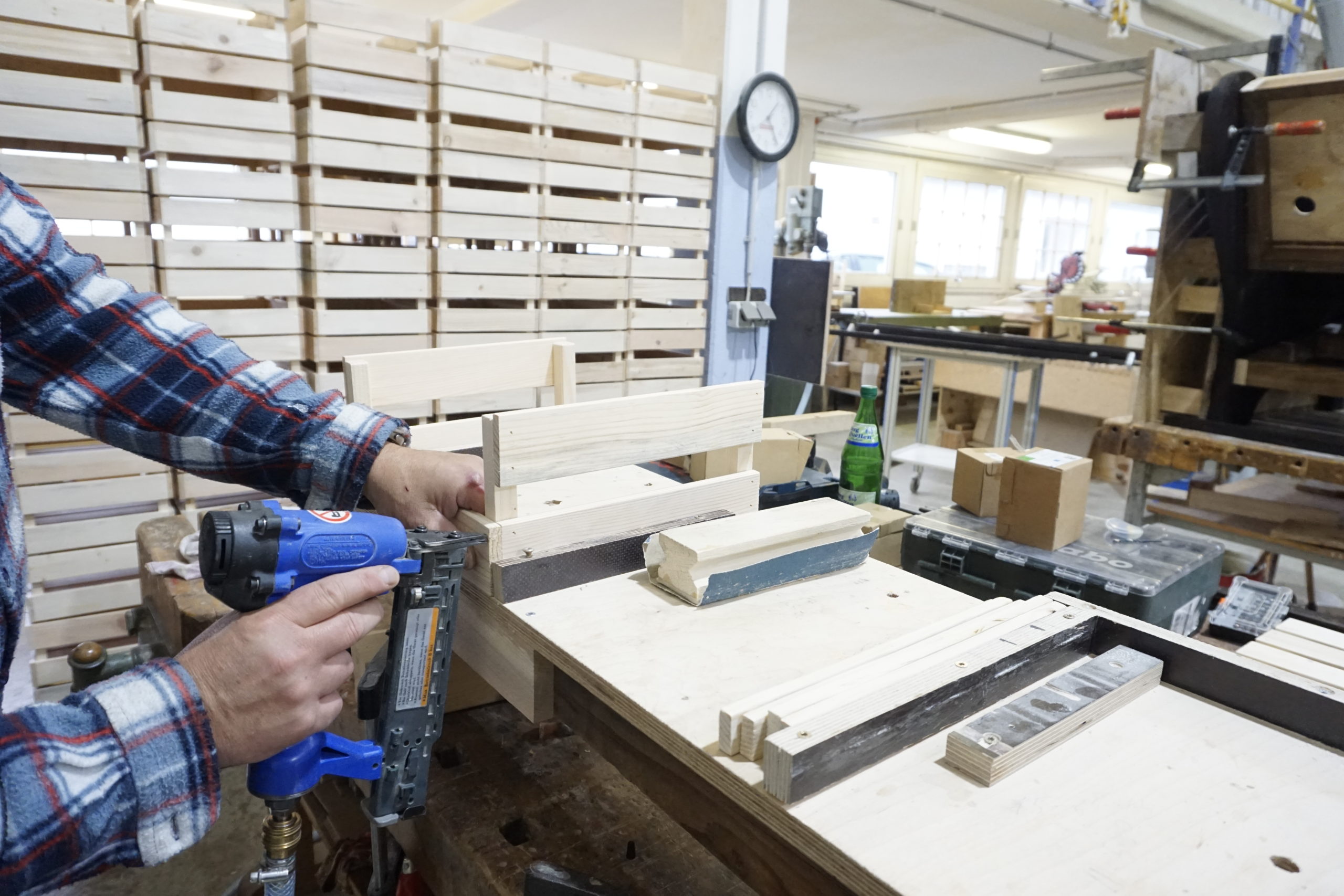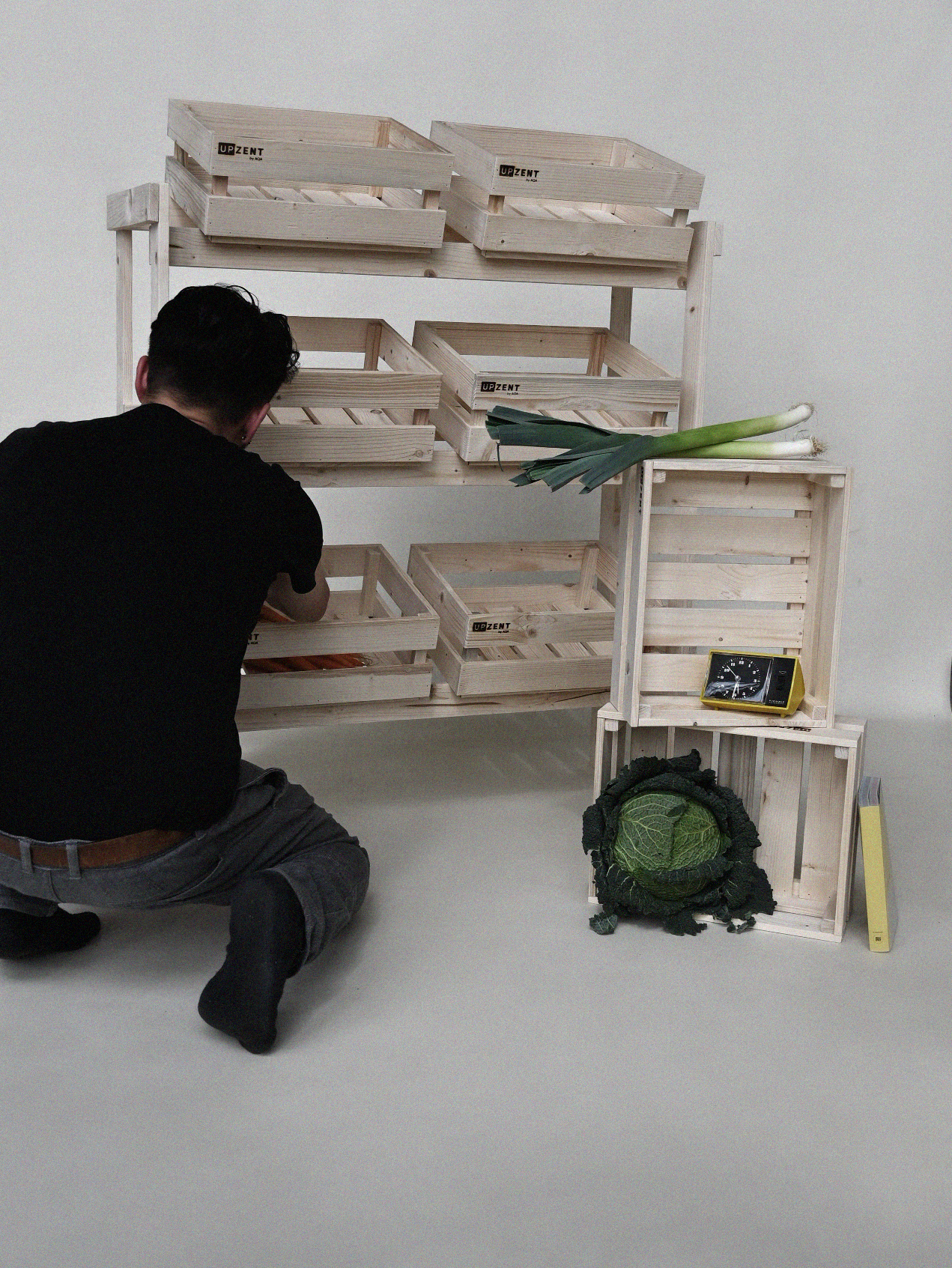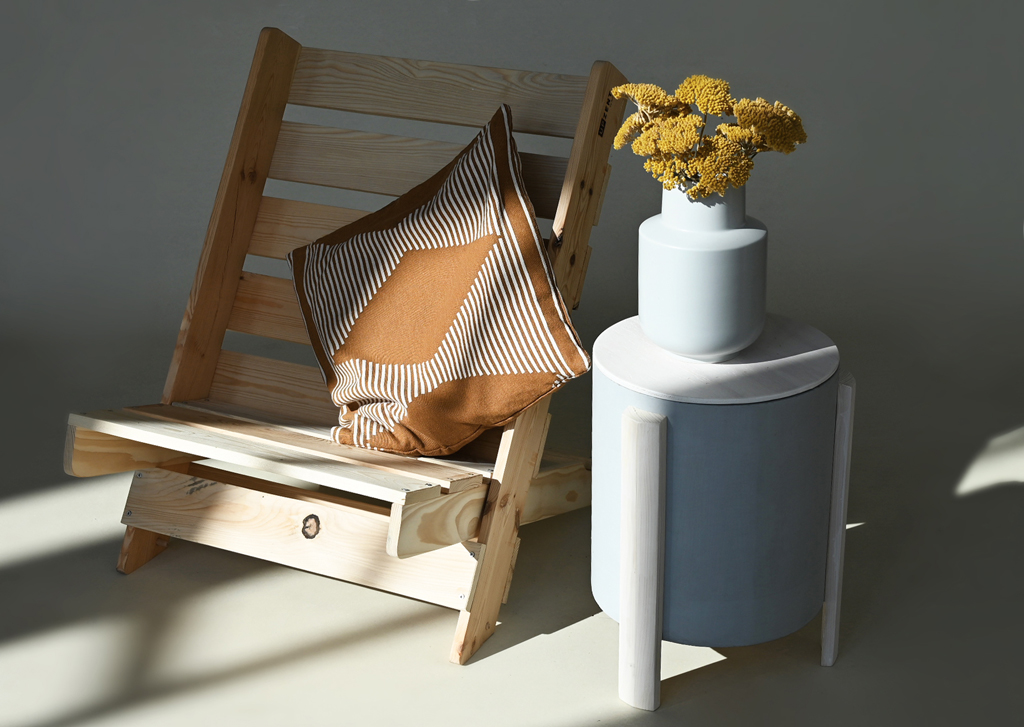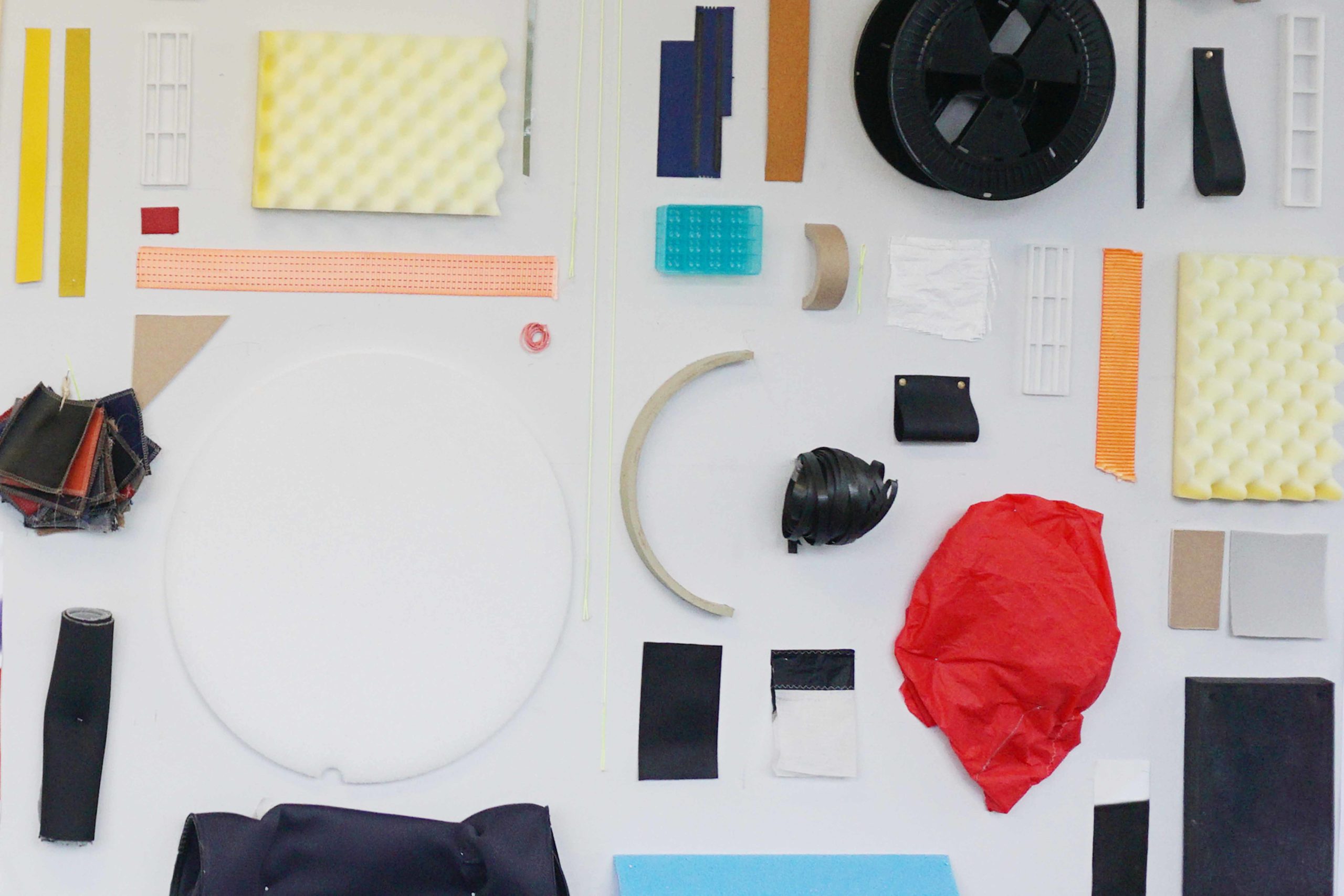UPZENT Upcycling Centre
Brief description
At UPZENT, we craft new products from surplus materials sourced from local businesses. We develop these items in partnership with social workshops, tailoring their design to the skills of the workforce, and manufacture them in small batches. Through our workshops and seminars, we aim to raise awareness about sustainable product design and the hidden potential of waste materials. In this context, our carefully curated library of residual materials is a valuable source of inspiration.
Regional characteristics
Our collaborative workshop is located in the Saarland district of Neunkirchen, which is recognized as a region with structural challenges. It’s a compact rural district consisting of seven municipalities and home to approximately 131,000 people. Historically, until the early 2000s, the district’s identity was shaped by the coal and steel industry. Since 1990, migratory trends and demographic shifts have led to a decrease in population.
Duration
UPZENT evolved from two research projects. During the initial funding phase (2016–19), it was part of the Land(auf)Schwung model project set up by the Federal Ministry of Food and Agriculture. In the second phase of funding (2019–22), it received support under the ReziProK project (Resource-efficient Circular Economy – Innovative Product Cycles) run by the Federal Ministry of Education and Research. Plans are currently underway to formally establish UPZENT as a commercial company in 2023/24.
Recommendation 1: Seek out and spark inspiration among local collaborative and networking partners.
Recommendation 2: Tackle large tasks with dedication and small steps.
Recommendation 3: Take some time to peruse the UPZENT transfer concept on the KreativLandTransfer knowledge platform. If you’ve any queries, please reach out to us by email.
- Partner in the cultural and creative sector: K8 Institut für strategische Ästhetik gGmbH
- Subsector: Cultural management
- Partner SME: AQA gGmbH – non-profit employment and training organization of the district of Neunkirchen
- Economic sector: Social institution: Employment and training company (target group: long-term unemployed and migrants)
- Additional partners: IfaS – Institute of Applied Materials Flow Management (project initiator), FAUK e.V. (employment and training centre) as well as collaboration with many regional companies in Saarland, Rhineland-Palatinate and Herzogenrath providing surplus materials
- Innovation type: Service innovation | Process innovation
- How the collaboration came about: Joint project application
- Added value for the collaborating partners: Cost savings | Consolidation of expertise | Waste prevention (companies), capacity building (social workshops), meaningful work (scheme participants)
- Added value for the region: Increasing the attractiveness of the location | Participation opportunities for job seekers, awareness-raising and educational work, increasing regional productivity, setting up an upcycling and social design community.




